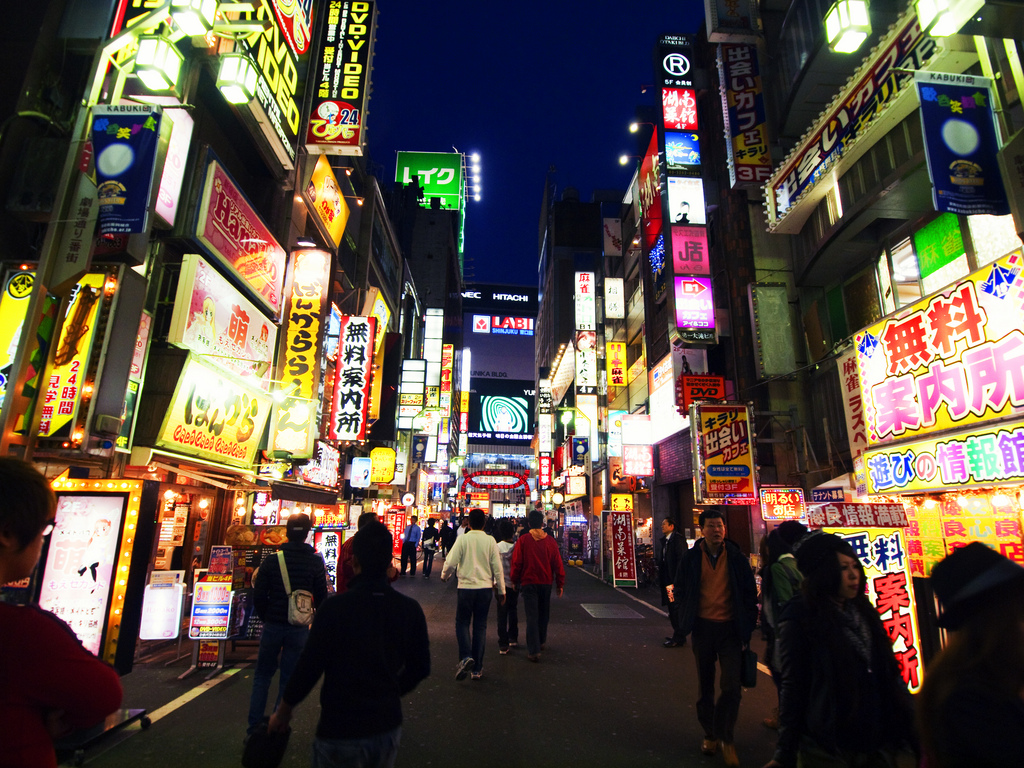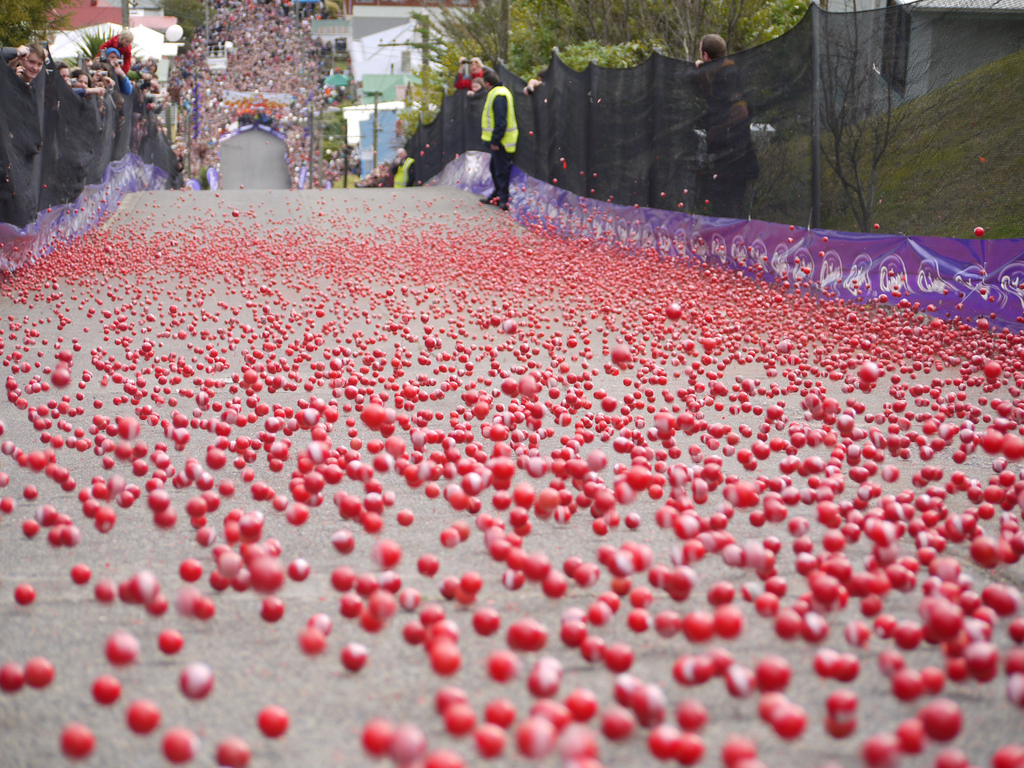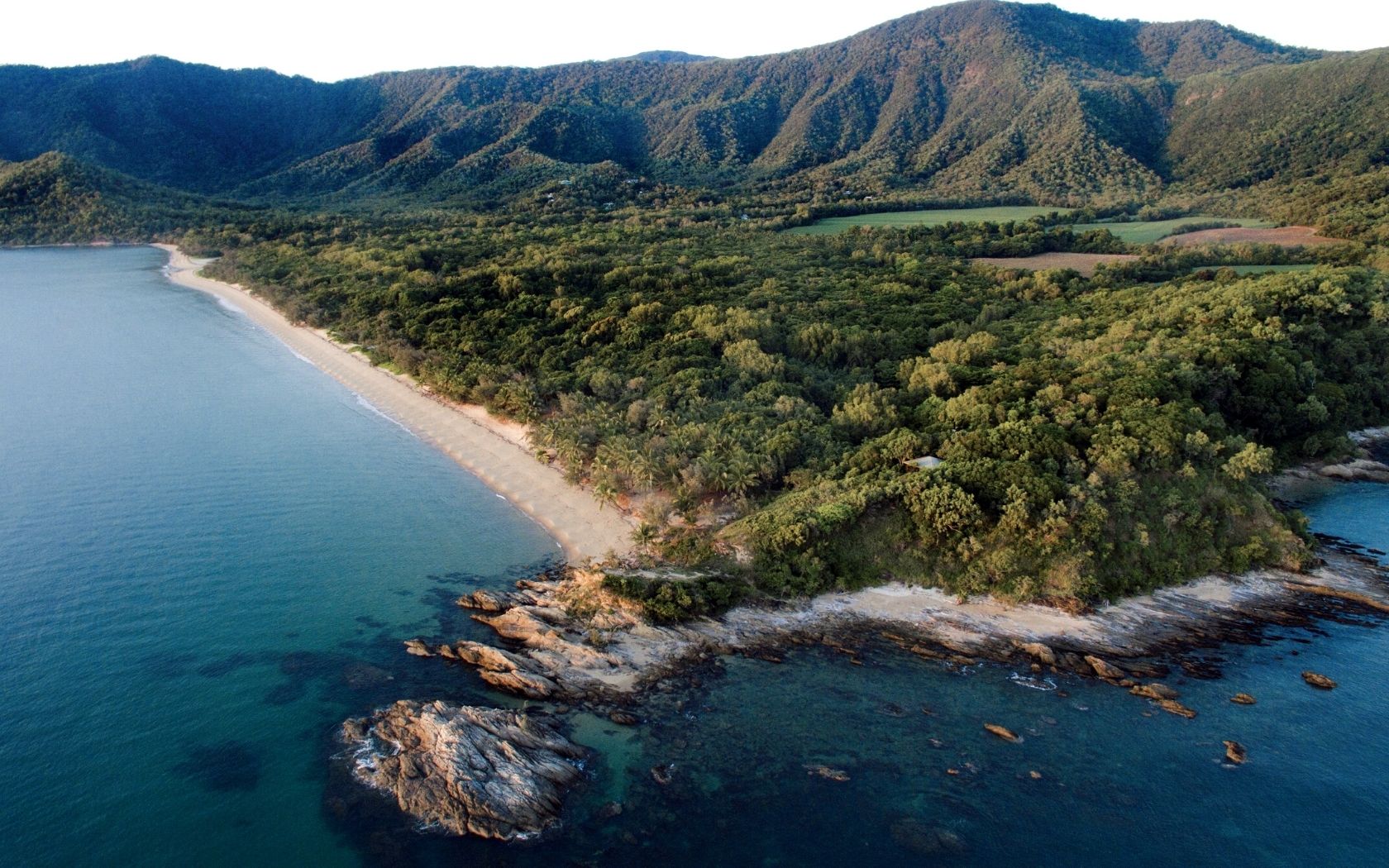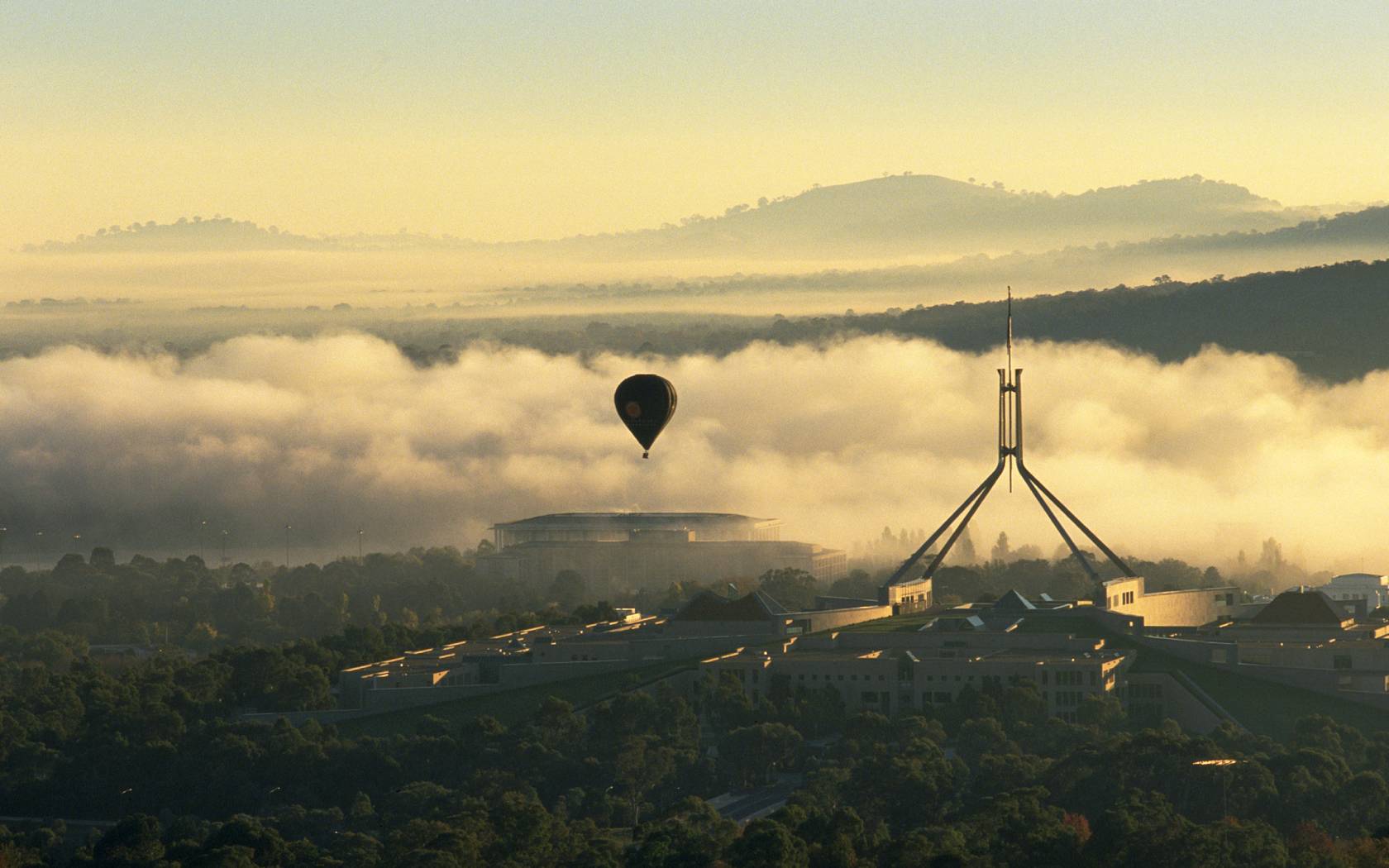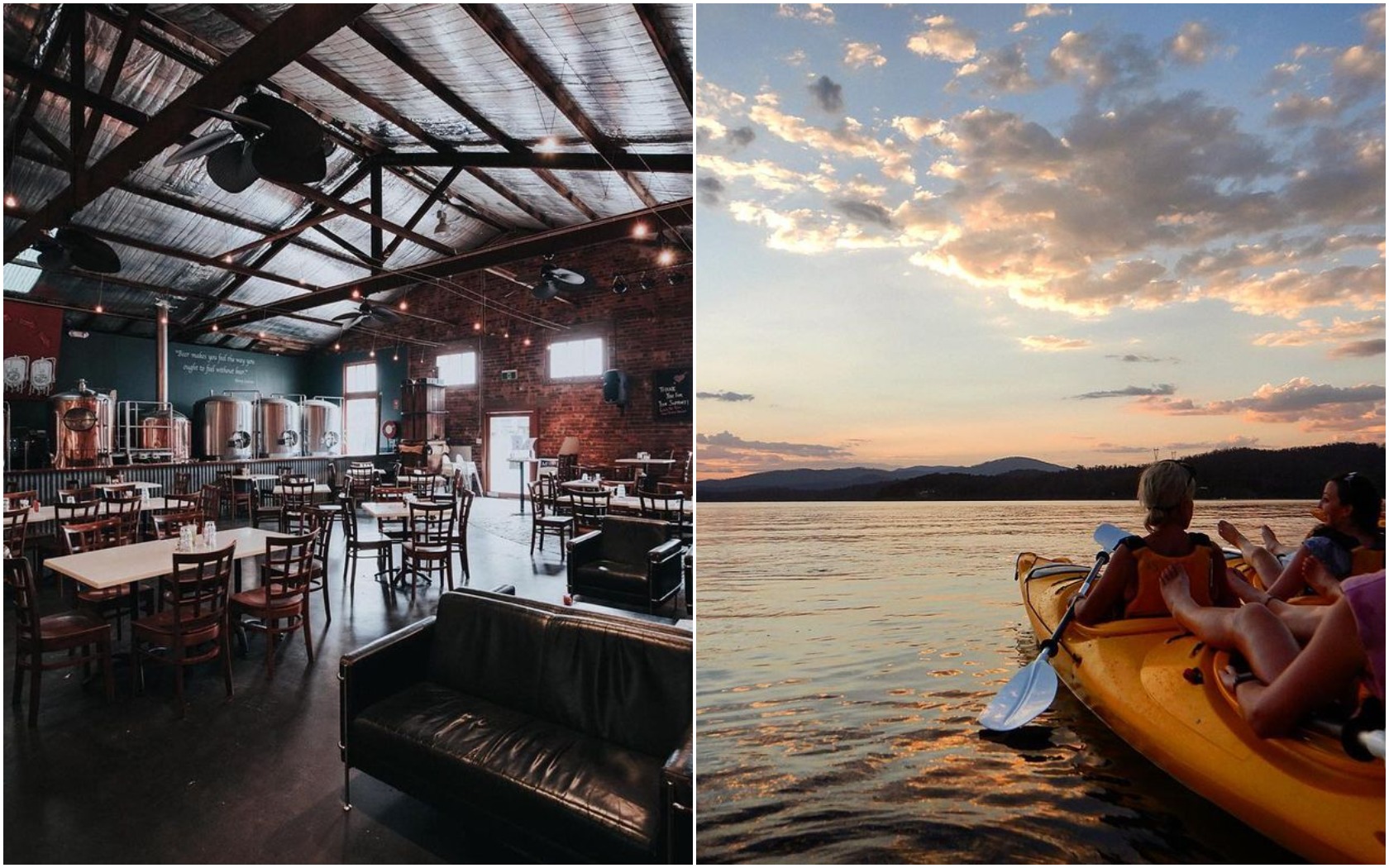5 Ways To Be More Sustainable This Festival Season
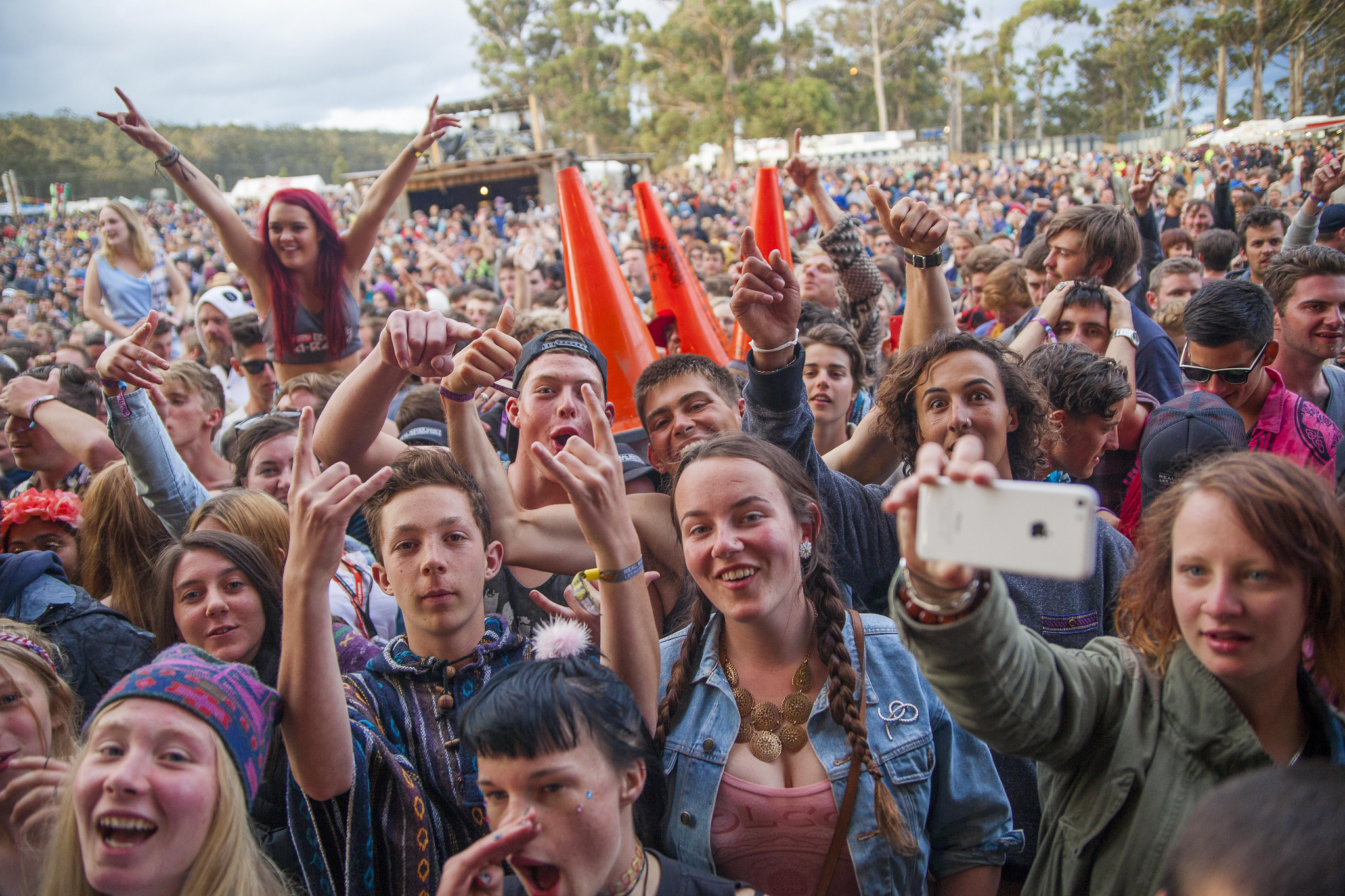
Jess O'Callaghan is finishing up her media degree and producing…
Festivals seem to be the bastion of the eco-conscious partier – fire ceremonies, tree hugging, prancing through grass without shoes on – the whole (delightful) lot of it. The back-to-nature vibe that some of Australia’s favourite festivals give off is often contradicted by the massive impact they have on their environment. The energy, transportation, and physical impact on the fields the festivals are held in makes them hard to justify environmentally.
But it’s not like festival-goers aren’t trying hard to make sure the impact is evened out. Last year saw 79% of ticket buyers for Falls Festival offsetting their carbon emissions with ticket purchase. Many festivals are trying to make it easier, through their choices in suppliers, and waste management systems, to ensure summer celebrations are as guilt-free as possible.
While patrons might not be able to control the big things like who runs the loos or where bins are placed, there are some really simple ways to make your festival season a more sustainable one.
Pick Your Festivals Wisely

When you’re deciding which festival to go to, make sure to read the different sustainability policies like this one from Golden Plains or this one from Falls, so you know if you’re picking a festival that cares about their impact. You’re going to be giving them a lot of money, they had better not be jerks about it.
Look out for the festivals that use composting toilets, sort recycling on-site, have drinking water supplied and have compostable food and drink stalls.
You could even go about it the other way, and deliberately patronise the festivals with excellent records in sustainability. You can check out the festivals listed on A Greener Festival for ideas. Falls, Woodford, and WomAdaleiade are all up there as good at being green. Let’s face it, they’re usually the better festivals anyway.
Think About Transport
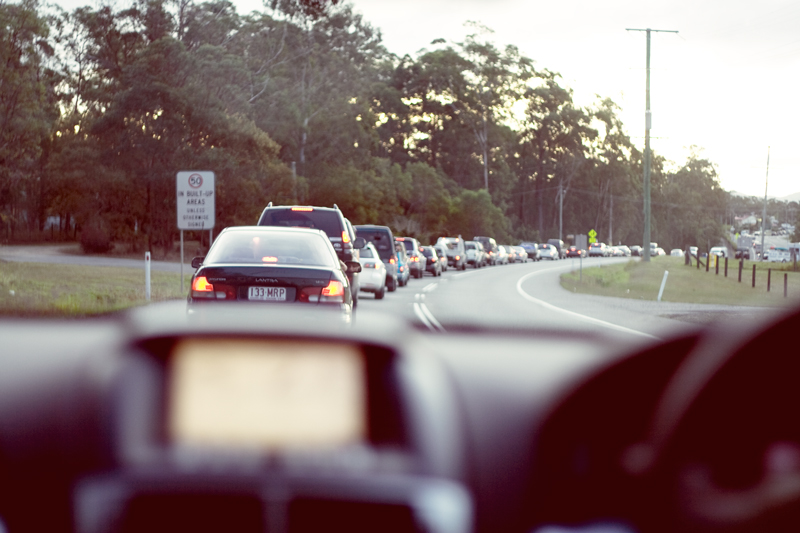
While cars can sometimes be necessary – to sleep in, to store all the stuff you brought and to sit in the boot of when you forget your camping chair – there are ways to travel to and from festivals that are way more environmentally friendly.
Think carefully about how many cars you and your friends are taking and if you could cosy up in the back seat a little more and cut down on your carbon emissions. Could you pile all the stuff into one car and take the bus? Could you sleep in a swag? Most festivals provide a bus service, and some festivals have car-pooling systems. In fact, you can always start that on your own on Facebook.
Don’t Leave Your Tent Behind
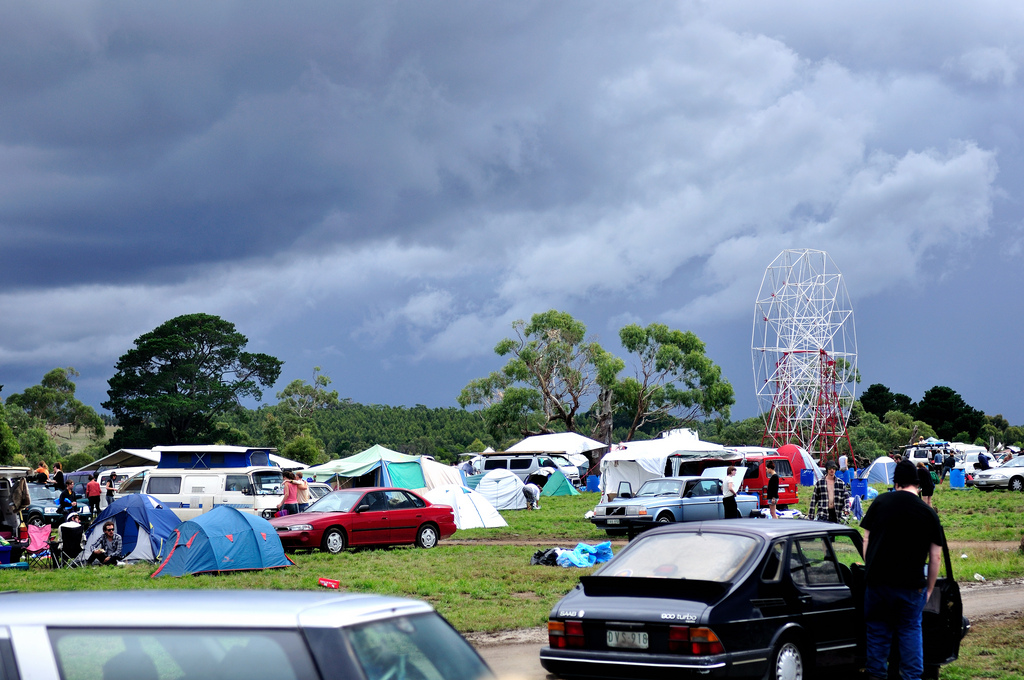
One thing that happens year after year, no matter how many carbon offsets are being bought or how many hippies are at a festival, is this – tired, hungover people don’t like packing up tents. They look at their broken, soggy piece of polyester canvas and think, “Nope, that is not something I want to deal with,” and they leave it at the grounds. The Falls Festival resorts to begging – “Please Please Please…Take Your Tent Home!”
Just because you can find tents for $20 at discount stores these days doesn’t mean they’re disposable. Tents aren’t typically biodegradable. They’re a whole heap of metal, plastic, PVC and gross stuff that is going to sit in landfill being useless and if you’re ditching a tent every year after festival season that’s a whole heap of waste created. Invest in something that you like, a tent that can be mended if it gets a little torn and won’t have to be ditched if it’s rained on.
A mud-caked, damp heap of canvas might not be fun to handle after a week of sleeping on the ground but it’s not so hard to squeeze it out, bundle it into a few garbage bags and wash it out later.
Be Wise With Water
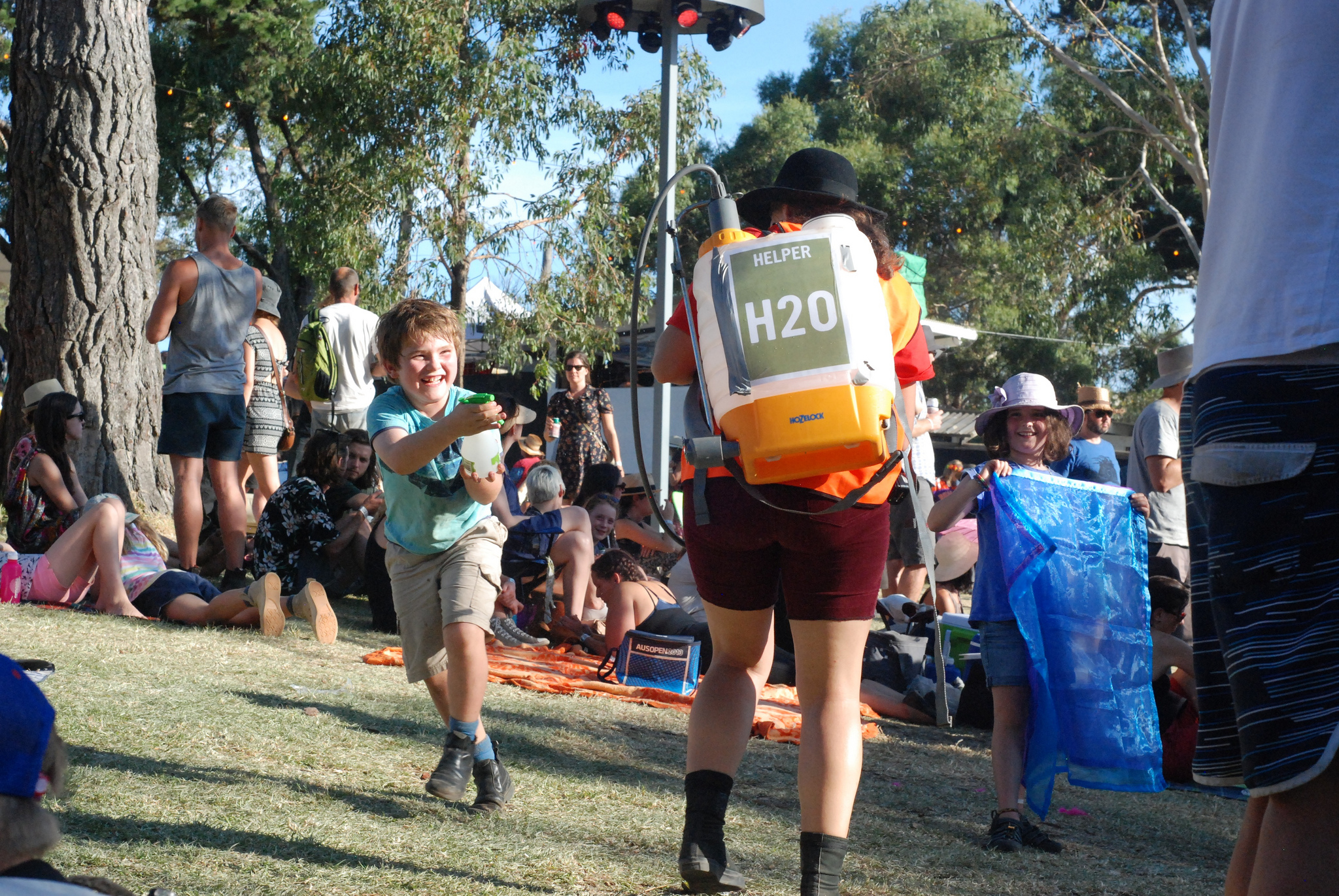
There’s a definitely need to stay hydrated at festivals – you’re running around, dancing, drinking, and having all of the things you drink come sweating back out of you under the harsh summer sun, but there are better ways to deal with this than a slab of water.
A slab of water can seem like a great idea at the time. It’s hard to resist near the checkout at the supermarket, on special, looking refreshing and convenient. But it’s just not worth it. The environmental impacts of bottled water are pretty damning. Most plastic bottles are made of crude oil, they have to be transported around burning fossil fuels, and can take up to 1000 years to break down in landfill, if they even make it that far.
Just bringing a water bottle is both better and cheaper. If you’re worried there won’t be enough taps around or you’ll find yourself staring at the dark canvas of the tent above you one night, the trek to the taps just too hard, invest in one of these. By invest, I mean spend less money than you would on the slab of water and take home a cool canteen at the end.
Use the Right Bins
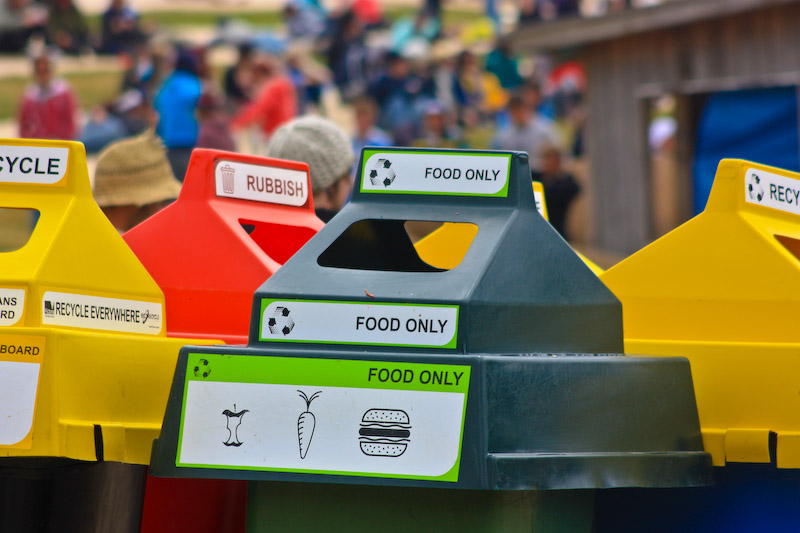
Dancing people, exhausted people and people letting loose. These are not typically people who are good at putting things in the correct rubbish bin. These aren’t people who are good at putting things in rubbish bins at all.
Festivals generate a huge amount of waste, so make sure you do your part by knowing the colour system for bins and bin bags, never discarding things on the ground just because you can’t be bothered or are having too much fun, and having a waste sorting system at your campsite so you aren’t having to separate recyclables later.
If you’re wearing costumes, masks, head-pieces, plastic flowers, beads and feathers, have a think about what could seem like trash later. Try not to buy things you won’t wear again, and try not to shed bits of it as the night progresses to be thrown into the rubbish by tired volunteers when the sun rises.
Even festivals like Burning Seed where you have to take all your rubbish off site can cause problems – make a plan on how to separate your compost, recycling and non-recyclable waste from the start, so you’re not stuck with a sticky mess of rubbish in the boot of your car.
(Lead image: David Burke/Flickr)
Jess O'Callaghan is finishing up her media degree and producing the Meanjin podcast. She writes for Right Now, Something You Said and Farrago.

